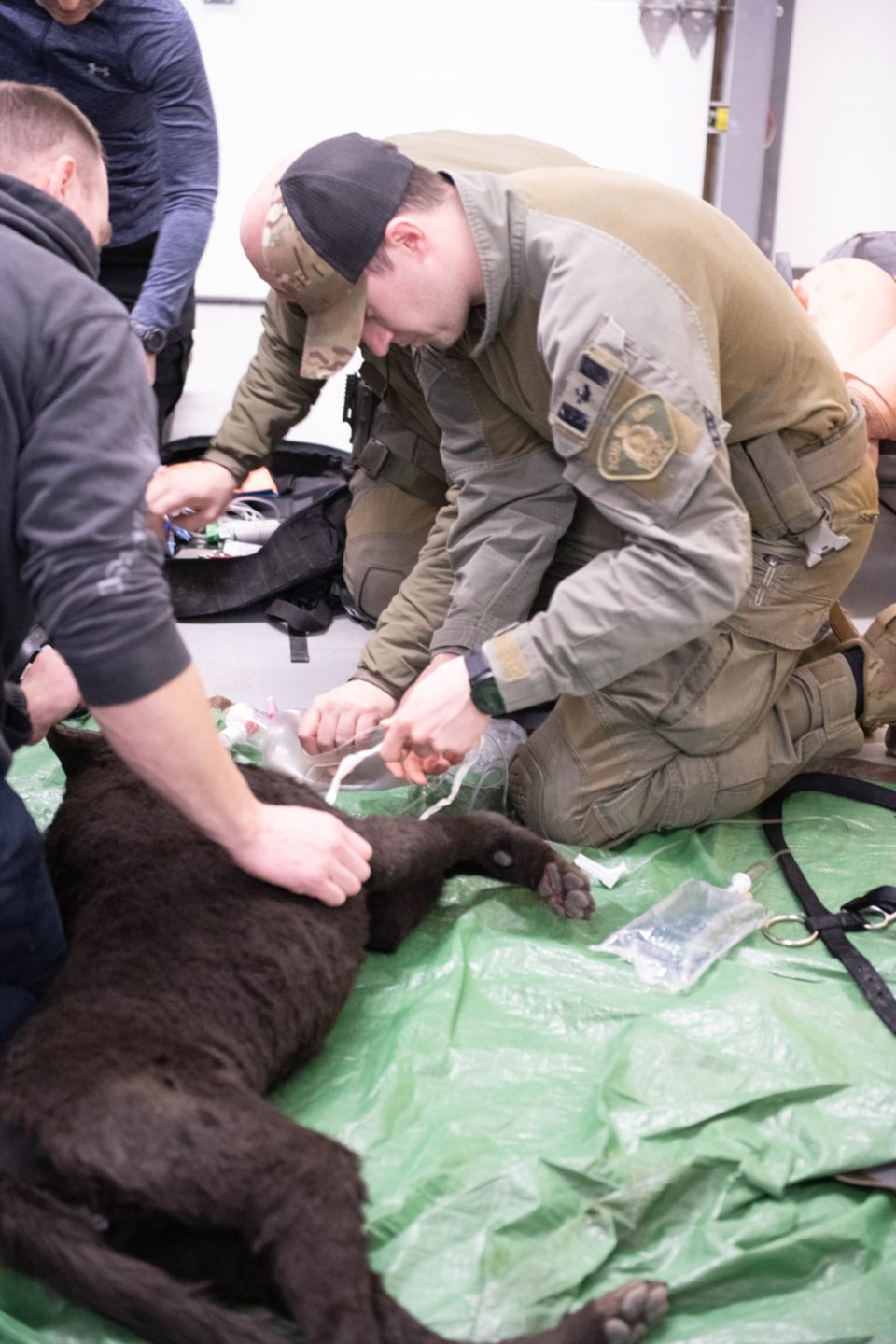PRINCE ALBERT — Saskatchewan RCMP’s police dogs are highly trained, multi-skilled and always ready to deploy to some of this province’s highest-risk calls for service, according to the police organization.
“That’s why our police dog handlers keep the dogs in tiptop shape through training and proactive medical care – and learn to provide first aid to them on the field. Training was held in Prince Albert Feb. 6 to 7 helped officers from Saskatchewan RCMP’s Police Dog Services (PDS) learn more about what to do in the case of a sudden injury or illness in the line of duty.
The session, developed by a veterinarian with the RCMP’s Police Dog Service Training Centre and the first-ever held in Saskatchewan RCMP jurisdiction, covered everything from mobility exercises to recognizing the signs of heatstroke to administering proper doses of medication in the field.
During the session, police officers ran through a number of mock trauma scenarios and administered first aid to a dog dummy, and also talked about managing the emotional response handlers may have if their dog is injured.
“Our police dogs are just like our police officers. When they respond to calls for service, it requires a high level of physical activity and exposure to high-risk situations,” explains Sgt. David McClarty, who heads PDS.
“Because of this, our handlers need to have the skills to keep these valuable members of Saskatchewan RCMP’s operational team healthy – and to know what to do in the case of an emergency.”
PDS: trained, skilled and ready to deploy
Saskatchewan RCMP has police dog teams ready to provide operational support throughout the province. The teams are posted throughout Saskatchewan to allow for maximum availability and coverage.
All of the police dogs have general duty training, including for searching/tracking and assistance in apprehending suspects. For example, in late January, police dog Soap and his handler were called to track two men who had stolen a vehicle and discharged a firearm in the Battlefords Detachment area. When the stolen vehicle was located, Soap led investigators straight to a house, where they found the suspects, one of whom had the keys to the stolen vehicle in his pocket.
Some of the dogs also have specialized skills, like explosives or drug detection. Police dog Kilo, who is part of the Saskatchewan RCMP’s Roving Traffic Unit, helped his handler seize approximately 1.5 kilograms of cocaine during a traffic stop in Maidstone in August 2023.
PDS assist in 1015 calls in 2023
In 2023, PDS assisted in 1,015 investigations, including high-risk situations; 229 of the calls involved firearms, 82 involved other weapons and 89 involved a flight from police. The handler-dog teams drove tens of thousands of kilometres during the year, to every corner of the province.
“As Saskatchewan’s police service, we are uniquely able to deploy these elite-trained PDS teams anywhere they are needed,” Sgt. McClarty explains.
“I’m proud of the work they do. I don’t think people always realize the immense physical condition our handlers must be in or the intense training – which is always ongoing – PDS does. This medical training we provided is just one example of our ongoing efforts to seek out more and more ways to enhance PDS’s already-impressive skills, so we can continue to support public safety in Saskatchewan.”




